Are you tired of running out of battery power on your ebike before you reach your destination? Or maybe you want to upgrade to a higher-capacity battery to increase your range and ride time? Whatever the reason, you’re not alone. Many ebike owners face the common problem of limited battery life and wonder if they can upgrade their batteries.
In this article, we’ll explore the benefits of upgrading your eBike battery, the factors to consider when choosing a new battery, and the steps involved in the upgrade process. Whether you’re a commuter, recreational rider, or serious cyclist, upgrading your eBike battery can make a significant difference in your riding experience. Let’s dive in.
Can I Upgrade the Battery on My eBike?

The answer to whether or not you can upgrade the battery on your eBike depends on several factors, including the make and model of your eBike, the type of battery it currently has, and your specific needs and preferences.
In general, eBikes come with either a removable or integrated battery. If your eBike has a removable battery, upgrading it may be as simple as purchasing a higher-capacity battery that is compatible with your eBike. However, if your eBike has an integrated battery, upgrading it may be more complicated, as it may require specialized tools and expertise to replace the battery.
It’s important to note that upgrading the battery on your eBike can have a significant impact on its performance, including range and power. A higher-capacity battery can provide longer rides and more power for hills and other challenging terrains. However, it’s also important to ensure that any battery upgrade you choose is compatible with your eBike’s motor and other components.
Another consideration when upgrading your eBike battery is the cost. Depending on the type and capacity of the battery you choose, upgrading the battery on your eBike can be a significant investment. However, if you’re someone who regularly uses your eBike for commuting or long-distance rides, upgrading the battery may be worth the investment.
In summary, whether or not you can upgrade the battery on your eBike depends on several factors. If your eBike has a removable battery, upgrading it may be relatively straightforward. However, if your eBike has an integrated battery, upgrading it may be more complicated and require specialized tools and expertise. Additionally, upgrading your eBike battery can have a significant impact on performance and cost, so it’s important to carefully consider your needs and preferences before making any changes
Factors to Consider Before Upgrading Your eBike Battery
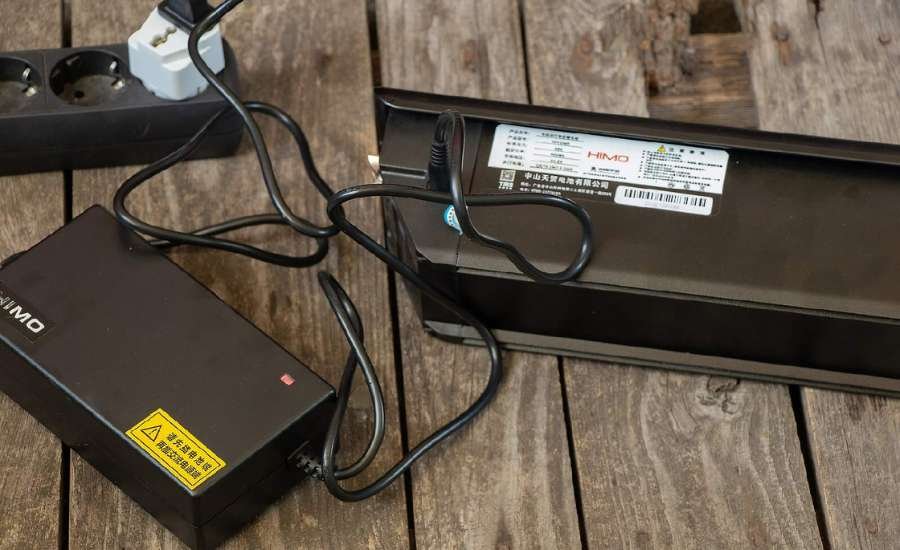
One common problem that e-bike riders face is the limited range of the battery. Fortunately, upgrading the battery is an option for e-bike owners who want to increase their range and overall performance. Here are some factors to consider before upgrading your e-bike battery:
🔲 Compatibility: Not all e-bike batteries are compatible with all e-bike models. Therefore, it is essential to ensure that the battery you want to upgrade to is compatible with your e-bike. This can be done by checking the voltage and capacity of your current battery and ensuring that the new battery has the same specifications.
🔲 Battery type: E-bike batteries come in various types such as lithium-ion, nickel-cadmium, and lithium-ion polymer batteries. Lithium-ion batteries are the most popular due to their lightweight, high energy density, and long lifespan. However, they can be more expensive than other types of batteries. Consider the battery type that is most suitable for your needs and budget.
🔲 Capacity: The capacity of the battery is an important factor to consider when upgrading. It determines how far you can ride your e-bike on a single charge. Higher-capacity batteries will give you a longer range, but they can also be heavier and more expensive. Determine the range you need for your e-bike and choose a battery with the appropriate capacity.
🔲 Quality: The quality of the battery is crucial in ensuring a long lifespan and reliability. Cheaper batteries may not last as long and can be prone to malfunctioning. Look for reputable brands that offer warranties and have a good track record in producing high-quality batteries.
🔲 Budget: Upgrading your e-bike battery can be a significant investment. Therefore, it is essential to consider your budget before making a purchase. While high-capacity and high-quality batteries can be expensive, they can also offer better performance and a longer lifespan.
In conclusion, upgrading your e-bike battery can be a great way to increase your range and overall performance. However, it is essential to consider the factors mentioned above before making a purchase to ensure that you get the right battery for your needs and budget.
Cost of Upgrading Your eBike Battery
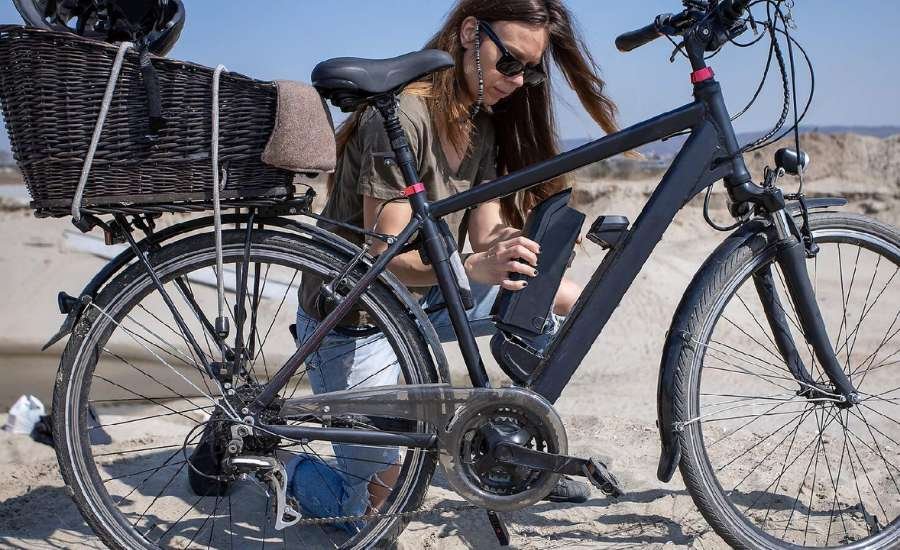
The cost of upgrading your ebike battery can vary depending on several factors. The size and capacity of the new battery, as well as the type of technology used, will affect the cost.
A typical e-bike battery can cost anywhere from $300 to $800, and some high-end models can cost even more. However, prices can vary greatly depending on the brand and supplier.
It’s important to consider the long-term benefits of upgrading your ebike battery, such as increased range and better performance. In some cases, it may be more cost-effective to invest in a higher-quality battery rather than continually replacing lower-quality ones.
Before upgrading, it’s important to consult with a professional ebike technician or dealer to ensure that the new battery is compatible with your existing bike and that the installation is done correctly.
Pros and Cons of Upgrading Your eBike Battery
Upgrading your e-bike battery can be a great solution to extend your range, but it also has its pros and cons.
Pros
🟩 Increased range: A higher-capacity battery can extend the distance you can travel on a single charge, giving you more freedom to explore.
🟩 Improved performance: Upgrading to a more powerful battery can enhance your e-bike’s overall performance, allowing you to climb hills with greater ease and travel at higher speeds.
🟩 Longer lifespan: A higher-quality battery can last longer than a lower-quality one, reducing the need for frequent replacements.
Cons
🟥 Cost: Upgrading your e-bike battery can be expensive, especially if you opt for a higher capacity or higher quality battery.
🟥 Weight: A larger battery may be heavier, making your e-bike less agile and more difficult to handle.
🟥 Compatibility: Not all e-bikes are designed to accommodate larger or higher capacity batteries, so it’s important to check compatibility before upgrading
Will a Bigger Battery Make My eBike Faster?

Simply increasing the size of your eBike’s battery will not directly make it faster. The battery’s primary function is to provide power to the motor, which in turn propels the bike forward. While a larger battery can store more energy, it does not directly increase the power output of the motor.
However, a larger battery can indirectly affect the speed of your eBike. If your current battery is too small, you may experience a decrease in speed or range as the battery drains quickly. By upgrading to a larger battery, you can potentially increase your eBike’s range and maintain a consistent speed for a longer period.
Ultimately, there are several factors that determine an eBike’s speed, including the motor’s power output, the bike’s weight, and the terrain. While a larger battery can indirectly affect these factors, it is not the sole determining factor in an eBike’s speed.
What Battery Do I Need for a 3000W eBike?
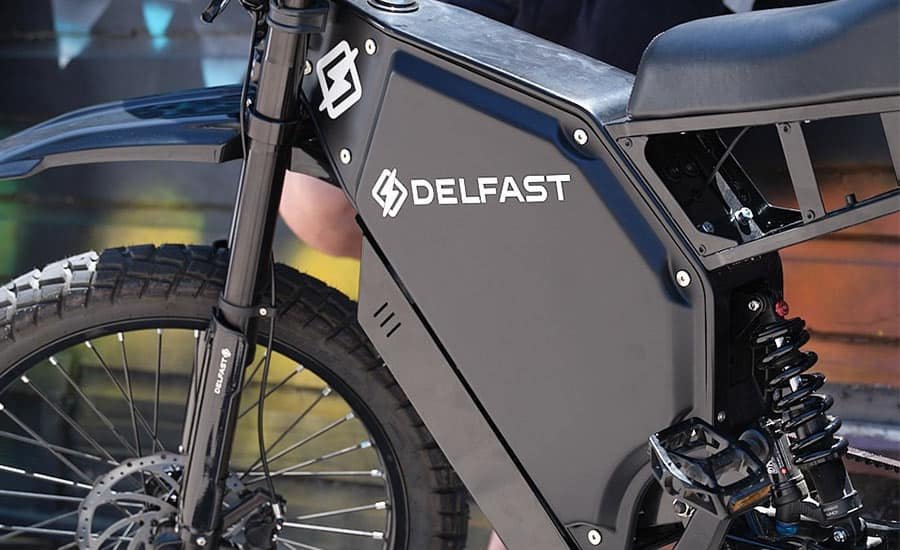
When it comes to selecting a battery for your 3000W e-bike, there are several factors to consider, such as the voltage, amp-hour (Ah) rating, and chemistry of the battery.
Firstly, let’s talk about voltage. A 3000W e-bike will require a battery with a high voltage rating to deliver sufficient power to the motor. Typically, a 72V battery is recommended for a 3000W e-bike, although some models may require a higher or lower voltage depending on the specific requirements of the motor.
Secondly, the Ah rating of the battery is also crucial. The Ah rating indicates the capacity of the battery and how long it can deliver power to the motor. For a 3000W e-bike, a battery with a minimum Ah rating of 30Ah is recommended. However, depending on your specific usage, you may need a higher Ah rating for longer rides or to handle more challenging terrain.
Lastly, the chemistry of the battery is also an important consideration. Lithium-ion batteries are the most common type of e-bike battery due to their high energy density, long cycle life, and low maintenance requirements. Therefore, it’s recommended to choose a lithium-ion battery for your 3000W e-bike.
In conclusion, for a 3000W e-bike, a 72V lithium-ion battery with a minimum Ah rating of 30Ah is recommended. However, you should always check the specific requirements of your e-bike’s motor and consult with a professional if you’re unsure about the best battery option for your needs.
What Battery Do I Need for a 1000W eBike?
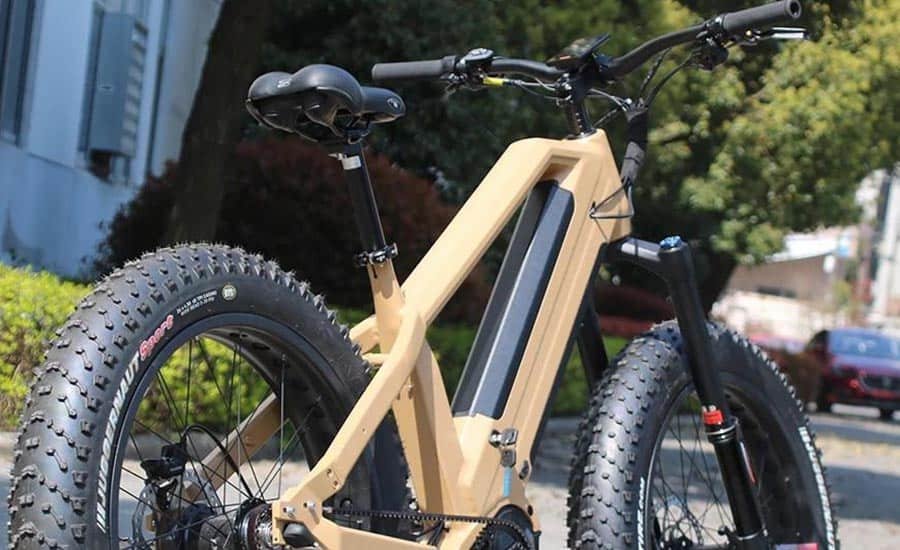
When it comes to electric bikes (e-bikes), the battery is one of the most critical components, and selecting the right battery for your 1000w e-bike is essential to ensure optimal performance and range.
The first step in determining what battery you need for your 1000w e-bike is to consider the voltage and capacity required. A 1000w e-bike will typically require a battery voltage of 48V or higher and a capacity of at least 15Ah to provide enough power and range for the motor.
When selecting a battery, it’s also important to consider the type of cells used in the battery pack. Lithium-ion batteries are the most common type of e-bike battery and offer a good balance of energy density, weight, and reliability. Within the category of lithium-ion batteries, there are several different chemistries, such as LiFePO4, LiPo, and Li-ion, each with their own advantages and disadvantages.
Another factor to consider is the form factor of the battery. Some e-bikes have an integrated battery that is built into the frame, while others use a removable battery that can be easily swapped out or charged separately. If your e-bike has an integrated battery, you will need to ensure that the replacement battery has the same form factor and mounting points as the original battery.
Finally, you should also consider the brand and quality of the battery. Opting for a reputable brand that has a proven track record of producing high-quality batteries is important to ensure that the battery is safe, reliable, and long-lasting.
In summary, when selecting a battery for your 1000w e-bike, you should consider the voltage and capacity required, the type of cells used in the battery pack, the form factor of the battery, and the brand and quality of the battery. By taking these factors into consideration, you can select a battery that provides optimal performance and range for your e-bike.
How Long Does a 48V Lithium-ion Battery Last?
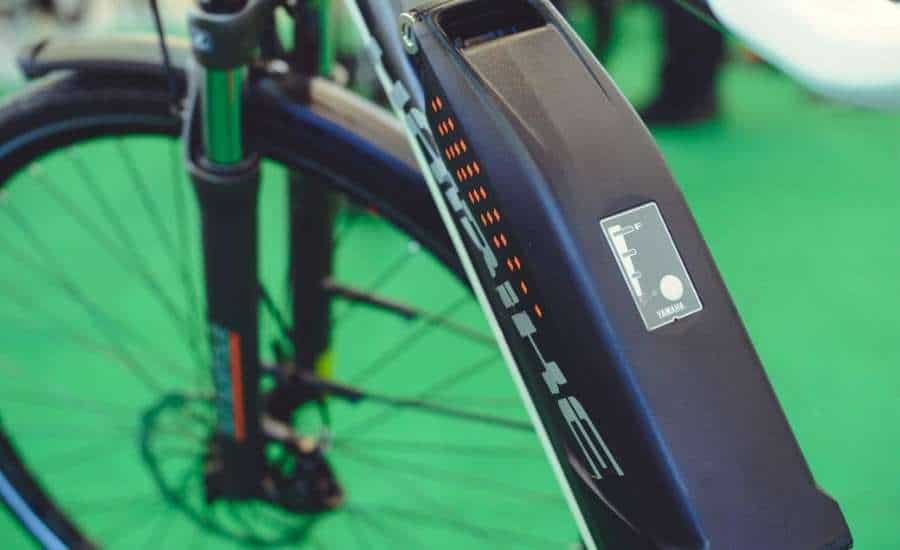
The lifespan of a 48V lithium-ion battery can vary depending on several factors such as usage, temperature, and maintenance. Generally, a well-maintained 48V lithium-ion battery can last for several years before needing to be replaced.
The life expectancy of a lithium-ion battery is typically measured in cycles. A cycle is defined as one complete charge and discharge cycle of the battery. The number of cycles a lithium-ion battery can endure is influenced by several factors, such as the depth of discharge (DoD), temperature, and charging rate.
The depth of discharge (DoD) is the percentage of the battery’s capacity that is used during a cycle. The deeper the discharge, the fewer cycles the battery can endure. A lower DoD, therefore, results in a longer lifespan for the battery.
Temperature is another critical factor that affects the lifespan of a 48V lithium-ion battery. High temperatures can accelerate the aging of the battery and reduce its overall lifespan. Therefore, it is recommended to store and use lithium-ion batteries in a cool and dry environment.
The charging rate also plays a role in the lifespan of a lithium-ion battery. Slow charging is better for the battery’s longevity than rapid charging, which can generate heat and cause stress on the battery’s components.
In general, a well-maintained 48V lithium-ion battery can last for 500 to 1000 cycles before it needs to be replaced. However, with proper care, the battery can last even longer, providing reliable performance over an extended period.
In summary, the lifespan of a 48V lithium-ion battery depends on several factors, including usage, temperature, and maintenance. To extend the battery’s lifespan, it is crucial to follow proper charging and discharging procedures, store it in a cool and dry environment, and avoid deep discharging whenever possible.
FAQs
Is it worth upgrading my ebike battery?
It depends on your needs and budget. If you need longer range or better performance, upgrading your ebike battery could be worth it.
Will upgrading my ebike battery void my warranty?
It depends on the specific terms of your warranty. Some warranties may be voided if you modify your ebike, while others may allow for certain upgrades.
Can I upgrade my ebike battery myself?
It is possible to upgrade your ebike battery yourself, but it can be complicated and may require some technical skills.
How long does it take to upgrade an ebike battery?
The time it takes to upgrade an ebike battery can vary depending on the complexity of the upgrade and your technical skills. It could take a few hours or several days.

